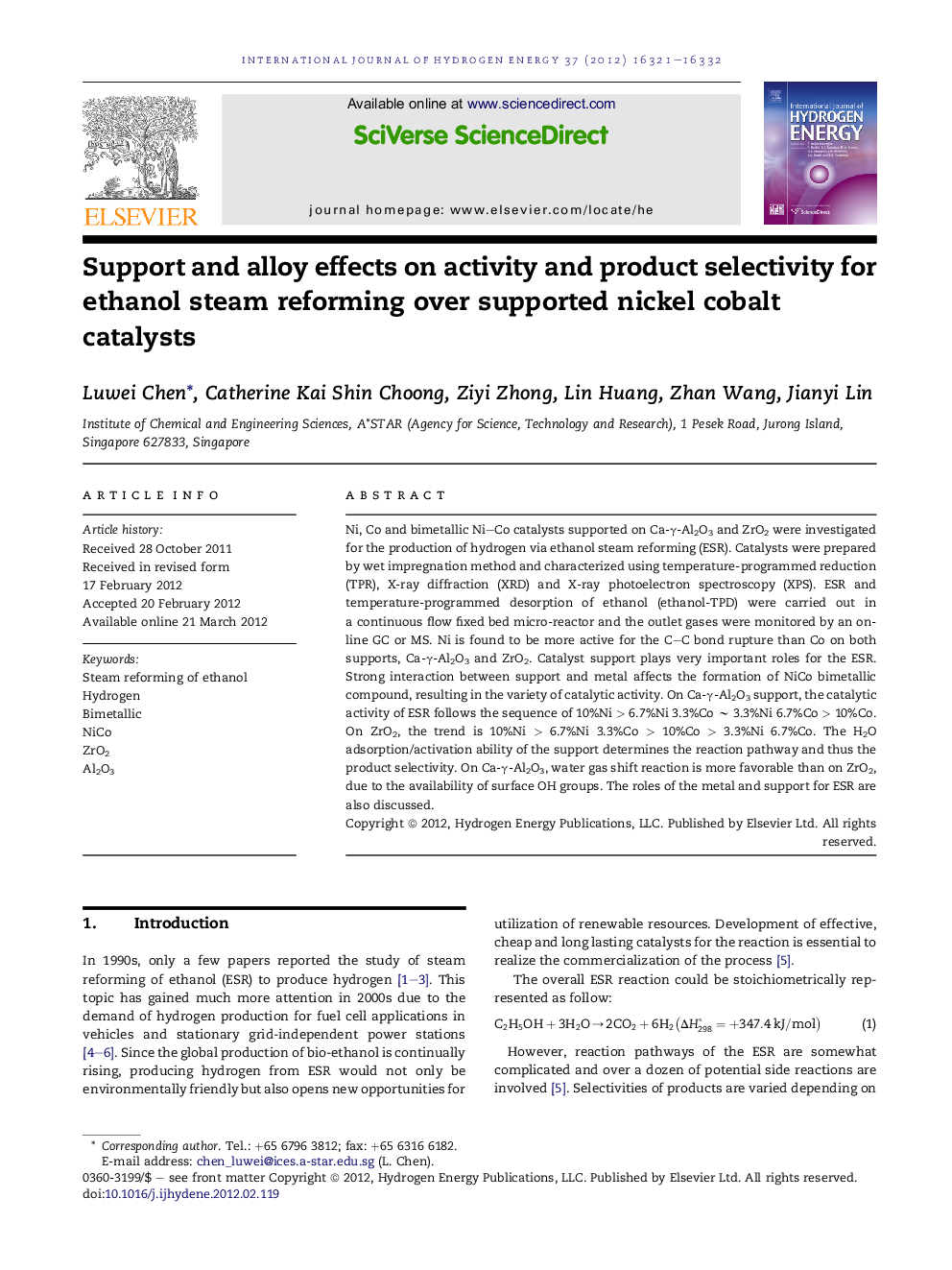| Article ID | Journal | Published Year | Pages | File Type |
|---|---|---|---|---|
| 1282160 | International Journal of Hydrogen Energy | 2012 | 12 Pages |
Ni, Co and bimetallic Ni–Co catalysts supported on Ca-γ-Al2O3 and ZrO2 were investigated for the production of hydrogen via ethanol steam reforming (ESR). Catalysts were prepared by wet impregnation method and characterized using temperature-programmed reduction (TPR), X-ray diffraction (XRD) and X-ray photoelectron spectroscopy (XPS). ESR and temperature-programmed desorption of ethanol (ethanol-TPD) were carried out in a continuous flow fixed bed micro-reactor and the outlet gases were monitored by an on-line GC or MS. Ni is found to be more active for the C–C bond rupture than Co on both supports, Ca-γ-Al2O3 and ZrO2. Catalyst support plays very important roles for the ESR. Strong interaction between support and metal affects the formation of NiCo bimetallic compound, resulting in the variety of catalytic activity. On Ca-γ-Al2O3 support, the catalytic activity of ESR follows the sequence of 10%Ni > 6.7%Ni 3.3%Co ∼ 3.3%Ni 6.7%Co > 10%Co. On ZrO2, the trend is 10%Ni > 6.7%Ni 3.3%Co > 10%Co > 3.3%Ni 6.7%Co. The H2O adsorption/activation ability of the support determines the reaction pathway and thus the product selectivity. On Ca-γ-Al2O3, water gas shift reaction is more favorable than on ZrO2, due to the availability of surface OH groups. The roles of the metal and support for ESR are also discussed.
